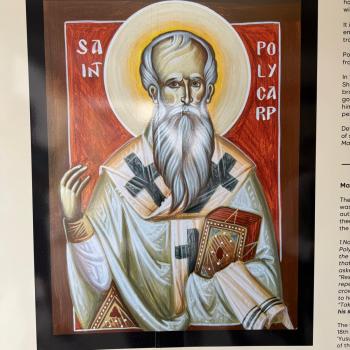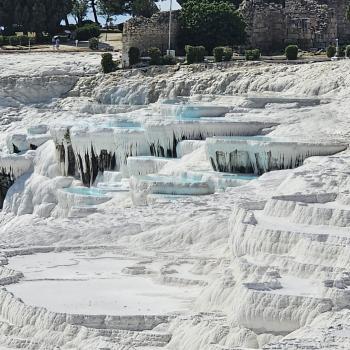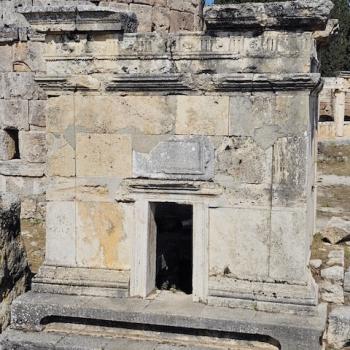BEN: Maybe we should go back to square one. The term basileia like the term malkuta which Jesus would have used has a range of meaning, obviously. The English translation ‘kingdom’ is not helpful because in normal plain English it connotes a place, not a people, but a place as in the Magic Kingdom, or the United Kingdom, or the Hashemite Kingdom, which can be located on a map. I much prefer the translation dominion, because at least in English, like in Greek and Aramaic it can have either more of verbal sense (‘to have dominion over’) or a noun sense ‘to enter a dominion’ ‘to inherit a dominion. The very language used for the future of the basileia does not encourage us to simply equate it with a people. You can’t enter or obtain a people, but you can enter or inherit or obtain a dominion. Now do dominions involve people necessarily— of course, as you say, but these terms do not simply ‘mean’ a people.
The terms refer to the work of God saving and establishing a people, sanctifying a people, and in the end providing a place for those people when the kingdoms of this world all become God’s place, God’s kingdom. This I think is the most obvious explanation for the present and future discussions of these terms in the NT. God’s dominion activity results in a gather people, sanctifies a gathered people, but the people are not the activity. Likewise,the place they will end up (first heaven, then the new heaven and new earth) is not a people, it is a place. It will it be populated with God’s people— of course. But it is an actual place in both cases. So when I suggest to people who want to see where the dominion is happening, of course I always say, you need to look at what is happening in the church.
SCOT: If you use the word “dominion” you make the core meaning more verbal, like rule or reign. My work showed that malkuth is often paralleled with “nation” and never a dynamic word like save or conquer or rule. That’s the starting place for me.
I think it was probably Dalman, in the late 19th Century, who turned the meaning of the term toward its verbal dimension, and read closely that guy seems at times to want to make sure it was not Jewish or did not refer to Israel. We know that German history.
It cannot be reduced to people for me: it has to have five elements even if one of the five will be a focus in the context. I often have to say “kingdom is a people” because it is the one thing often ignored, suppressed or erased.
BEN: In regard to the word dominion, it also clearly has a noun sense….. as in the King’s Dominion or around here ‘the Old Dominion state’ so it can have either sense. It’s interesting that you would say that you can’t have a kingdom without a people…… what about exile? The land of Judaea was still considered the ‘kingdom’ by Jews in exile, even when they weren’t there. I don’t want to quibble with you about these things, and while I can see how a kingdom can involve all five of the things you mention, I think the nuances vary from text to text, and in some text it certainly refers mainly to God’s saving activity, and in some texts it refers to a place in the future we will enter as God’s people.
Like you, I have no interest in anti-Semitic readings of the text, which is one reason I’m not for the ‘Israel expanded’ definition of church, and insist that Rom. 11 says non-Christian Israel still has a future in Christ when he returns.
Tom’s reading of this stuff leads him right into the charge of supersessionism, which of course he has to spend tons of pages denying in his latest work.
I could well be wrong, but it does sometimes in some places in your book still seem to me that what you are insisting on has more to do with what you are against— either a straight pleated pants reading or the khaki pants reading, or the old anti-Semitic reading, than what you are for.
I’m looking forward to the King chapter 🙂













